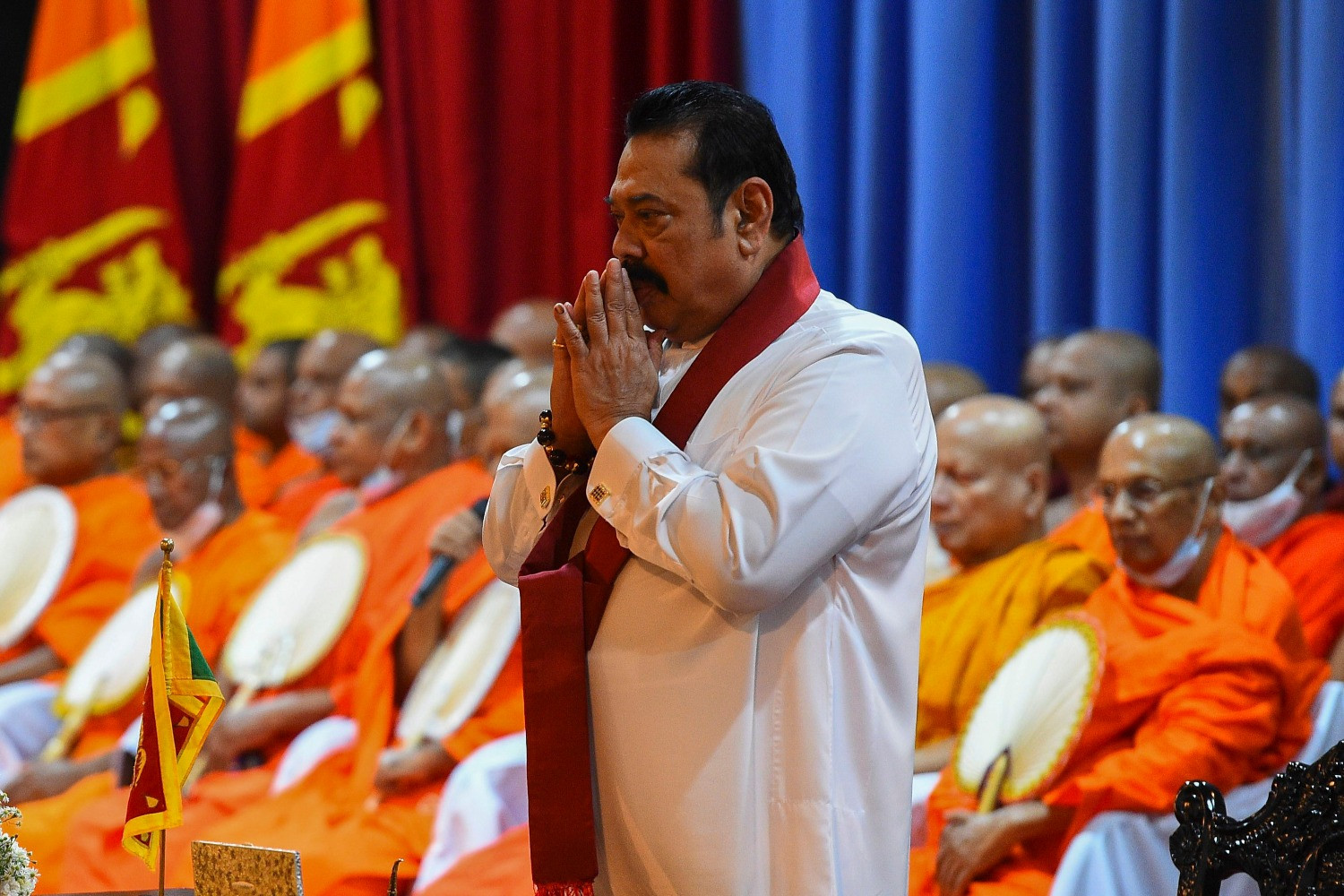Prime Minister Mahinda Rajapaksa has been appointed as the Minister of Economic Policies and Plan Implementation.
He took oaths before President Gotabaya Rajapaksa today.
Rajapaksa was earlier the Minister of Finance. However, his bother Basil Rajapaksa was appointed as the new Minister of Finance.
The Ministry of Economic Policies and Plan Implementation will be in charge of the planning and implementation of relevant policies, in order to accelerate economic development and social progress based on the National Policy Statement: “Vistas of Prosperity and Splendour”.
The Subjects and Functions of the new Ministry includes formulating policies in relation to the subject of economic policies and plan implementation, in conformity with the prescribed Laws, Acts and Ordinances, implementation of projects under the national budget, state Investment and National Development Programme, and formulating, implementing, monitoring and evaluating policies, programmes and projects, related to subjects and functions under below-mentioned State Corporations and Statutory Institutions for “economic policies & plan implementation” based on the national policies implemented by the government, and in accordance with the policy statement “Vistas of Prosperity and Splendour”.
The new Ministry will also facilitate carrying out relevant development activities while coordinating all ministries with the Presidential Task Force for Economic Revival and Poverty Alleviation and the Presidential Task Force for transform Sri Lanka into a Green Socio economy with Sustainable Solutions for Climate Changes.
It will also coordinate with the Presidential Task Force for Gama Samaga Pilisandara Rural Development.
The new Ministry will also monitor and review the cost of living and the flow of goods and services among the community of consumer, making periodic requests to the Cabinet Committee on Cost of Living to ensure that consumers as well as local producers and suppliers to receive goods and services at the reasonable prices.
it will also implement people-centric development activities by coordinating the development activities of District and Divisional Development Committees and Provincial Councils.


